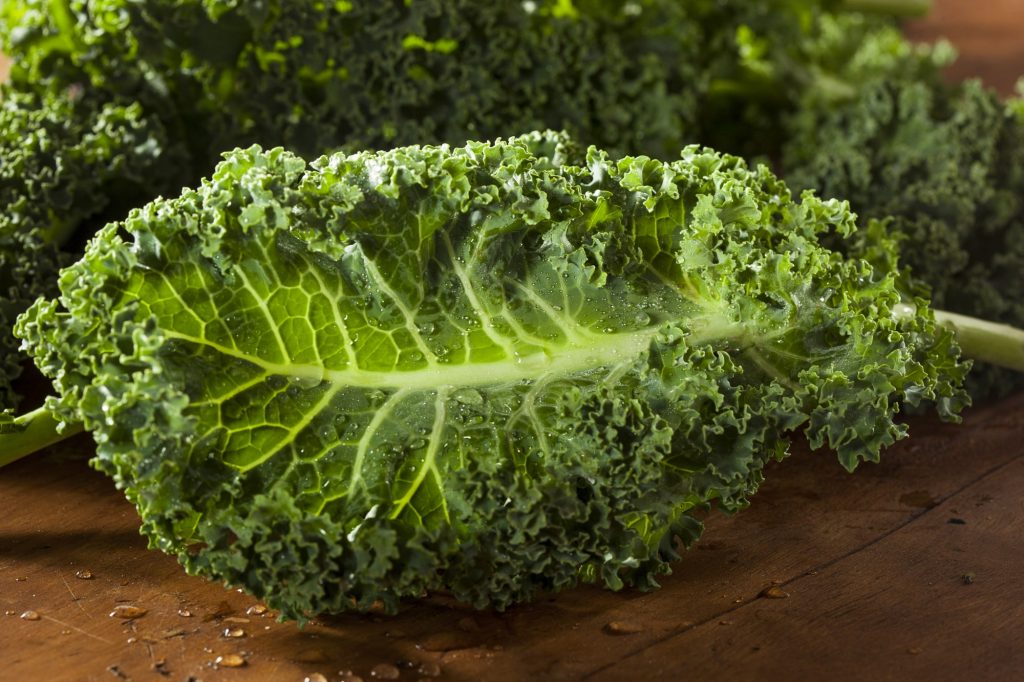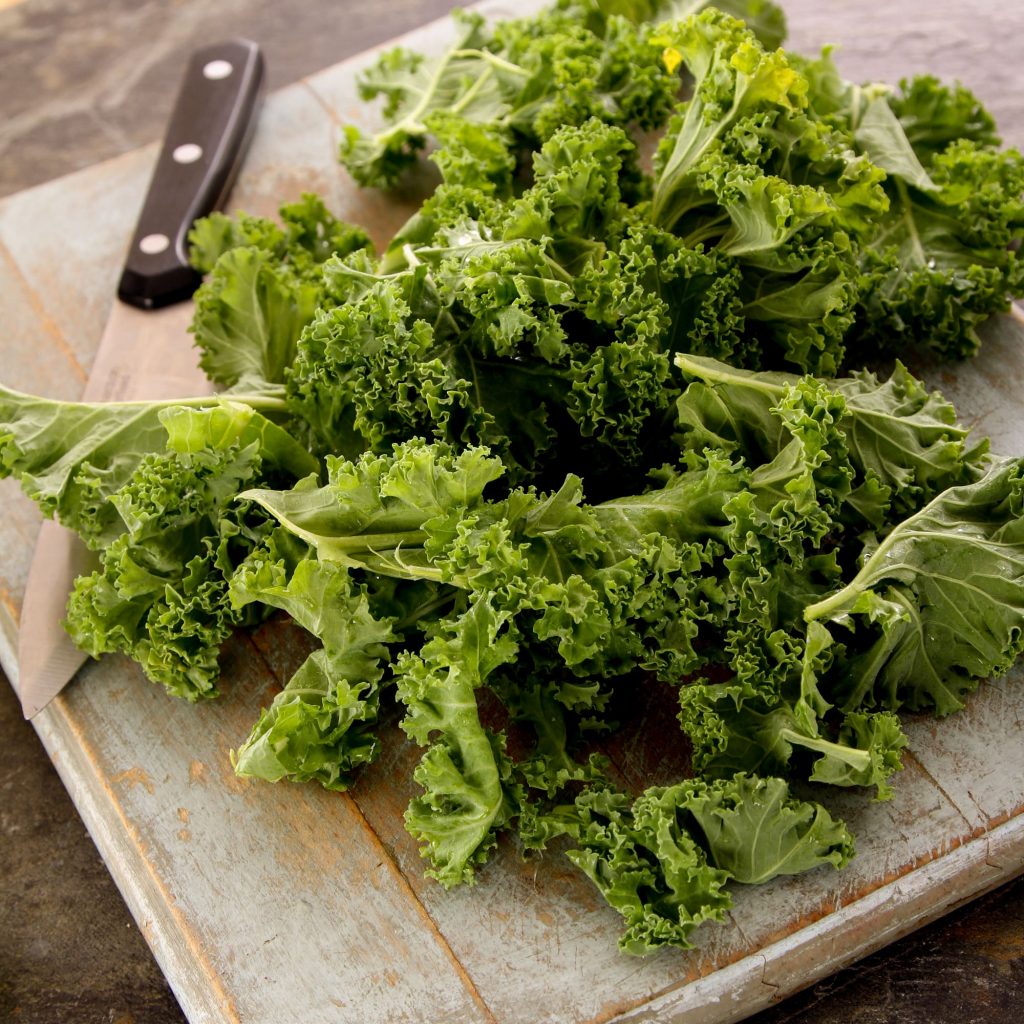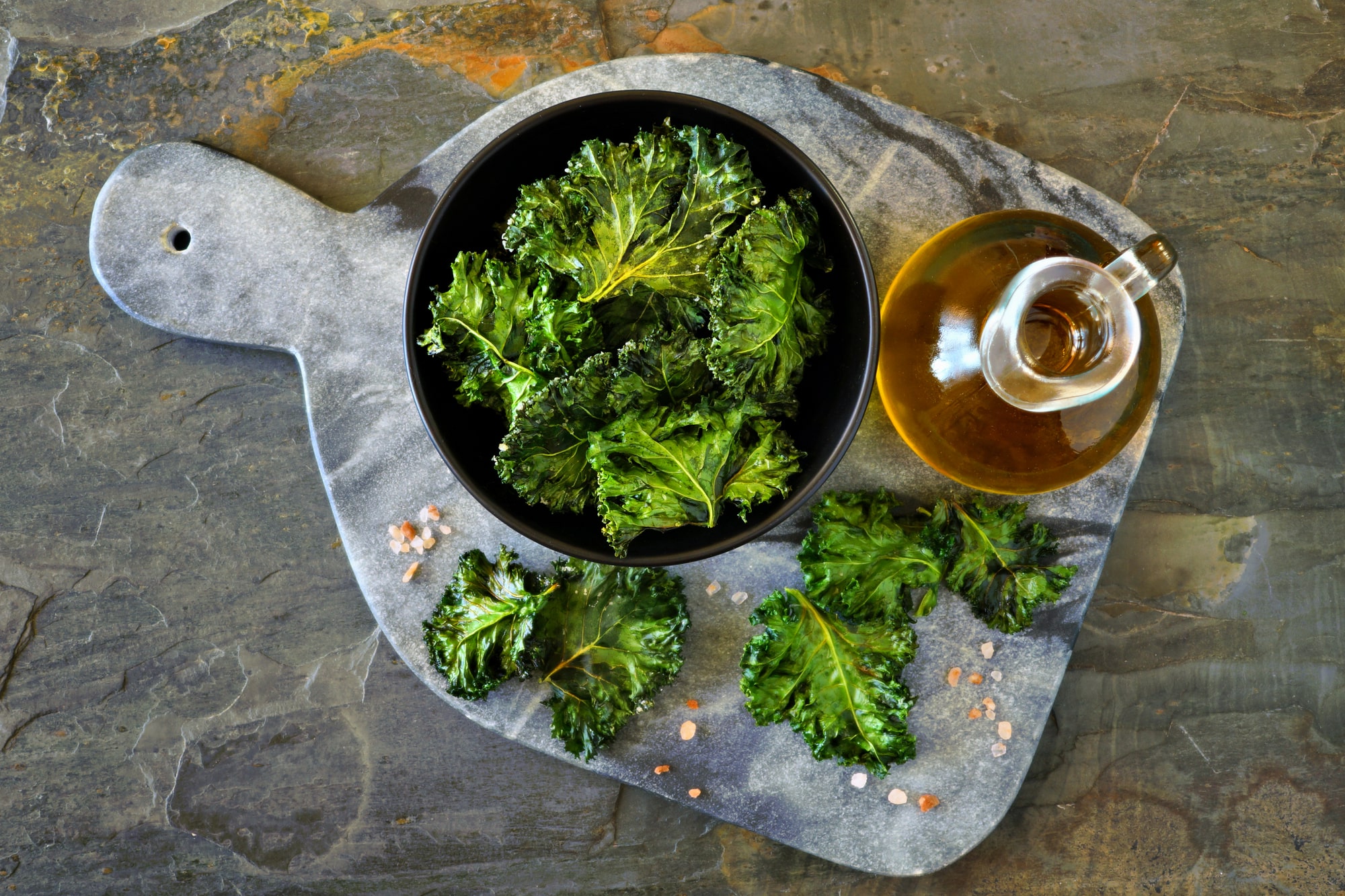Kale, sometimes called ‘the king of greens’, is considered as one of the world’s healthiest foods. It’s packed with various nutrients that support healthy hair, skin, and bones. But kale benefits so much more than just that!
Kale benefits cardiovascular health and enhances digestion as it’s a great source of fiber. Furthermore, this leafy winter vegetable is also packed with:
- Antioxidants
- Vitamin K
- Chlorophyll
- Calcium
How To Love Kale?
Whether you like, love or detest vegetables, I bet there is one or another forms of eating kale that you will enjoy such as:

All Hail Kale!
Put Kale in the ring with spinach and broccoli and you have a good fight! However, if we’re taking bets, I’d put my money on kale for its nutrient density! Not sure where you stand? Check out the top 7 health benefits of kale and let’s see who you decide to cheer on!
Top 7 Health Benefits Of Kale
Kale Contains Vitamin K
Vitamin K1 is known as the coagulation vitamin, since it helps the body’s blood clotting mechanism. Clotting is important because it helps prevent your body from bleeding too much when you are injured.
Also, Kale contains vitamin K2, which is known to activate over 17 proteins. For instance, vitamin K2 activates osteocalcin that is required for bone formation. Therefore, vitamin K improves bone strength
Kale Helps Keep Inflammation At Bay
Although known for its potent source of anti-inflammatory properties, kale also contains a variety of antioxidants which help protect our bodies against cellular damage.
Inflammation is a trigger for diseases and premature aging. However, antioxidants help in counter acting our inevitable daily exposure to oxidative stress.

Kale Is Nutrient Dense And Detoxifying
First off, it’s no surprise many people have favored this vegetable as one of the top diseases-fighting food. Afterall, kale protects the heart and lowers blood pressure. In fact, studies have indicated that eating kale can lower cholesterol.
Furthermore, the high values of calcium, potassium, and magnesium in kale also help lower blood pressure as the presence of these chemicals helps counter balance the notorious effects of sodium present in the body which can often lead to high blood pressure.

Kale Protects Against Vision Loss
The presence of lutein and zeaxanthin in kale help protect the eye lens and retina. Research also indicates that it also helps in fighting the two common eye diseases; cataracts and macular degeneration.
Additionally, it contains beta-carotene that helps shield the ocular eye tissues from harmful ultraviolet light damage.

Kale Helps With Digestion
This leafy veggie is made from fibrous material. Hence, like other leafy greens, is excellent in aiding digestion. However, if you want to get maximum benefits from kale, it is recommended that you also eat the stems which contain a high quantity of prebiotics.
The stem might be appearing rough when taken raw. However, when sautéed in olive oil, it is delicious and can help you in fighting indigestion in addition to acting as a treat to your health.

Kale Helps Maintain Healthy Hair And Skin
Kale is known to be high in beta-carotene. Beta-carotene is converted by the body into vitamin A, which is required by the body. The nutrients available in kale enables all body tissues to grow including the hair and skin. Moreover, it’s also essential for the production of sebum; an oil which keeps the skin moisturized.
Human eyesight, immune, and reproductive functions rely on vitamin A which is present in kale. Cooked kale provides 53.3 milligrams of vitamin C which is required to build and maintain collagen. Collagen is a crucial protein which provides structure for our hair, bones, and skin.

Kale Can Be Served In A Multitude Of Ways
Kale is a vegetable that you can have a lot of fun with. It can simply be:
- Chopped up and served in a salad
- Baked
- Made into kale chips with the flavor of your choice
- Steamed
- Fried
- Stacked in a sandwich
- Tossed into soup
Including kale in your diet is one healthy and fun way to stack up on nutrients!

